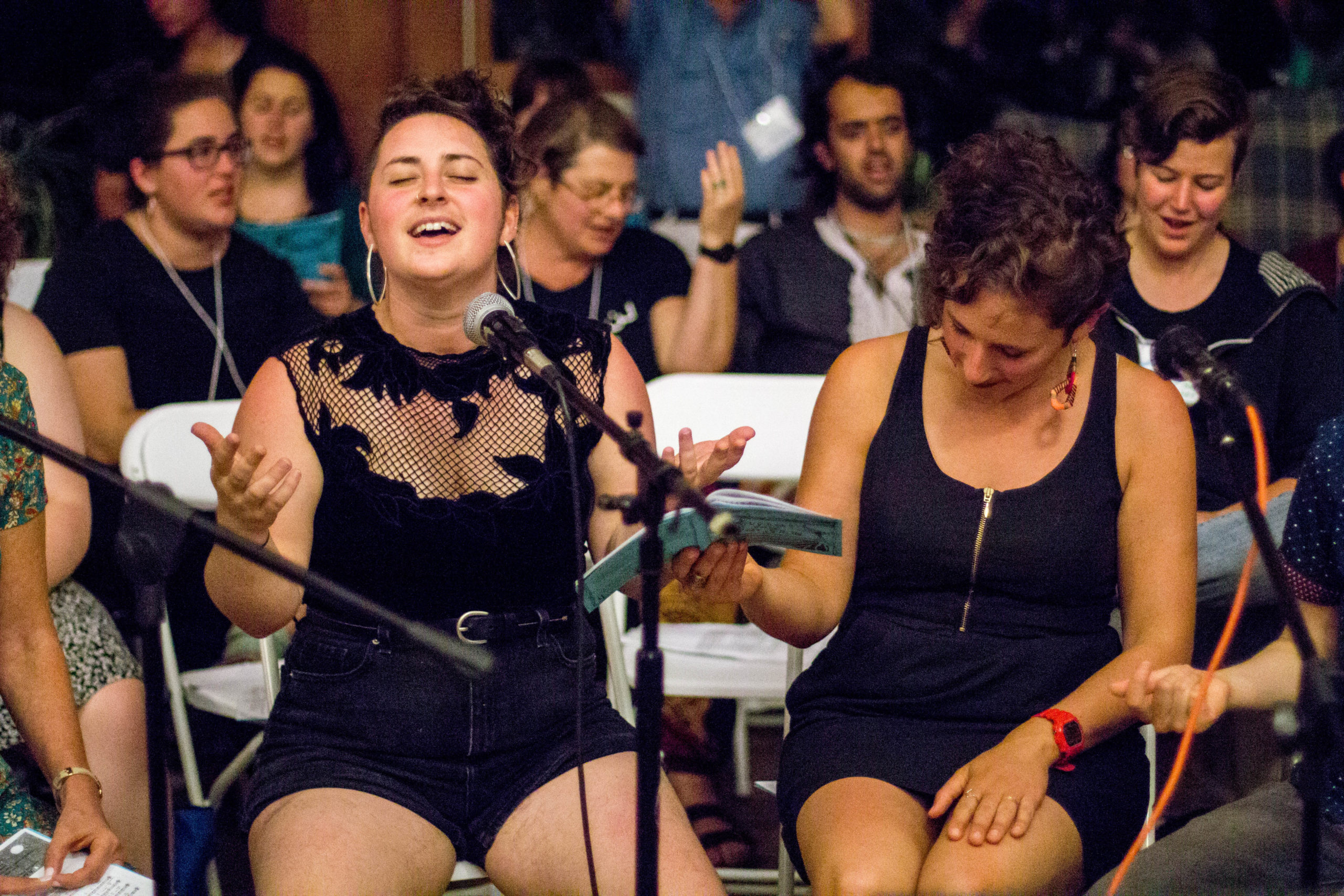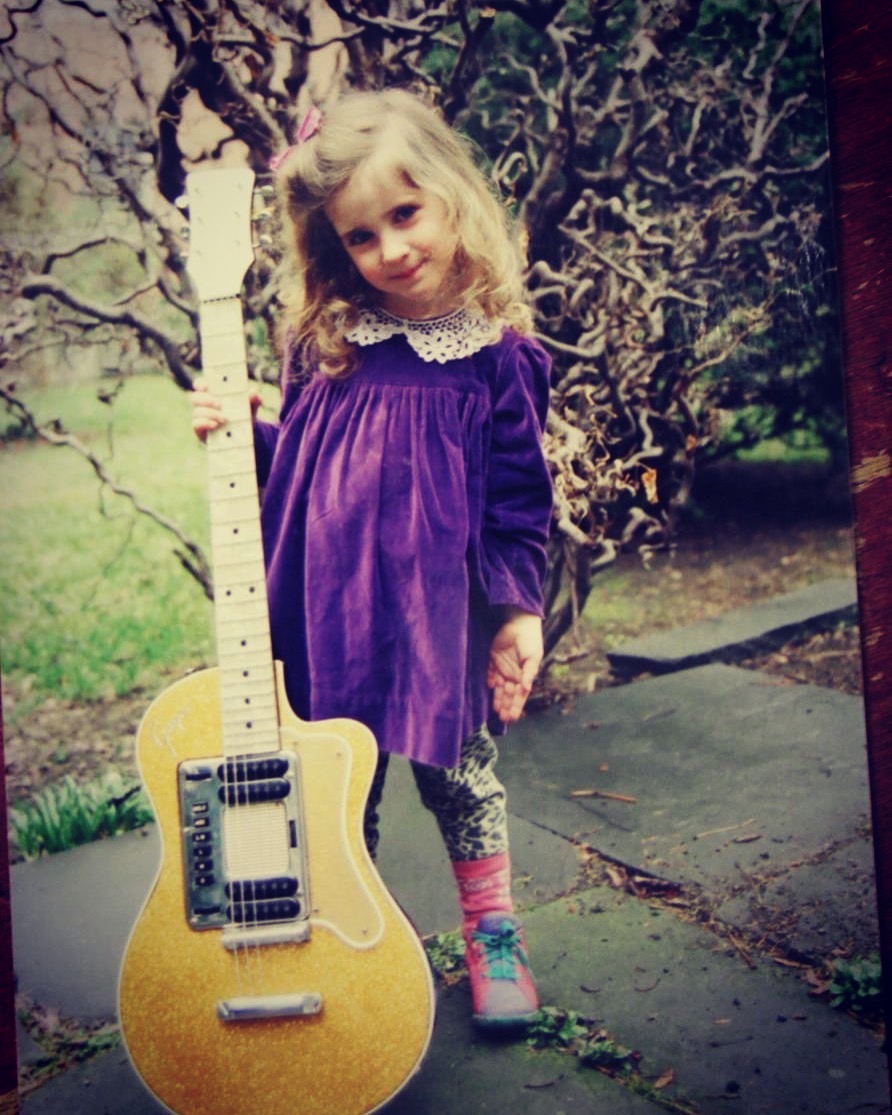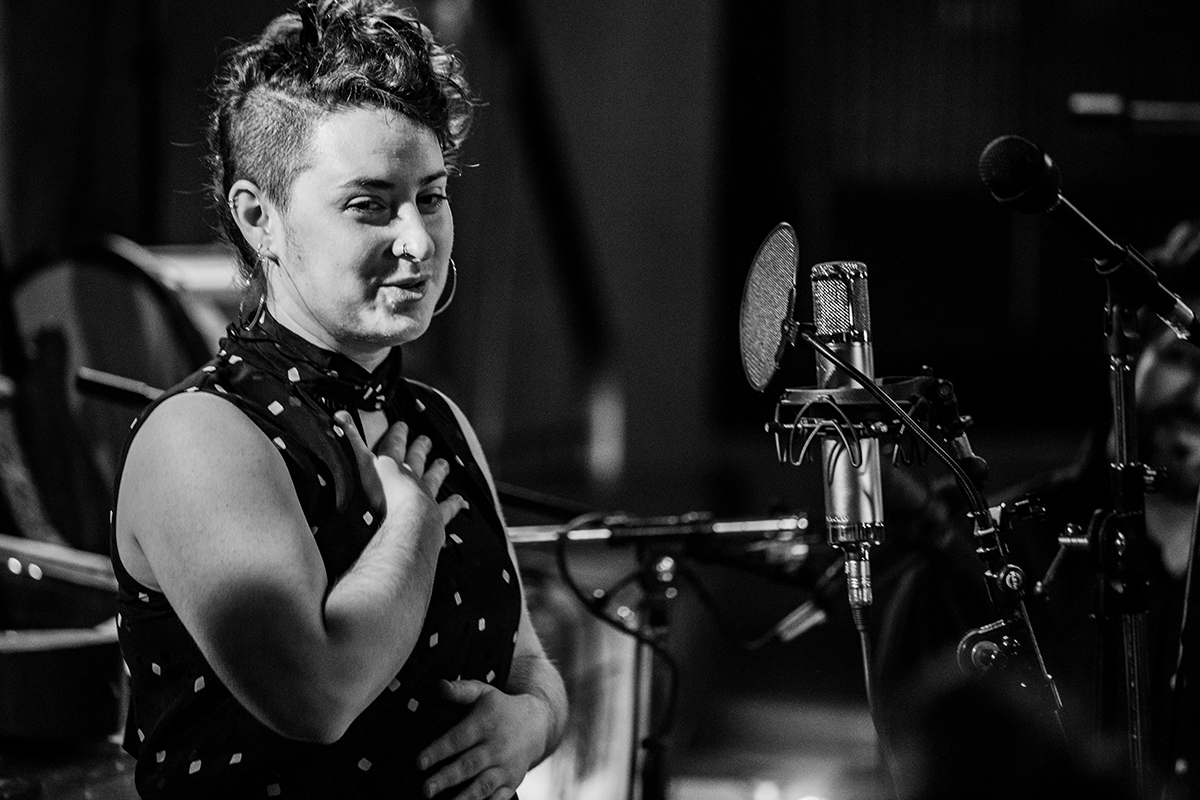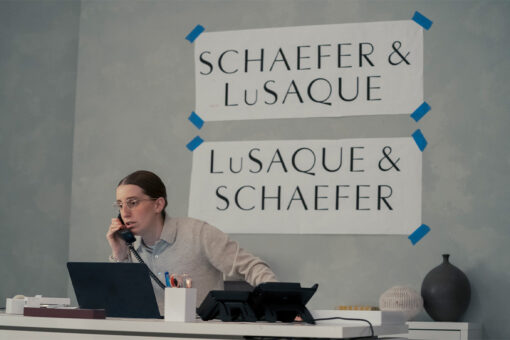As the months of quarantine stretched out, I, along with so many others, felt my friends and family dissolve into disembodied voices on the phone. It was all I could do to keep from succumbing to dissolution. My sense of isolation had increased to the point that when I was dialing Batya Levine’s phone number for this interview, I was pretty nervous. But as soon as she picked up the phone, something shifted.
Calling in from her West Philly apartment (on occupied Lenni-Lenape land), Batya (age 29) admitted that she was a bit nervous herself. But this not what came through. Instead, what struck me was how her openness and love shrunk the miles between us until it felt like we were just two people in a room. In the hour we spent chatting and sharing favorite quotes, my loneliness decreased just a little bit. This ability to cultivate welcoming community and bridge gaps — even with a total stranger like myself! — is the central message I take away from Batya’s music.
This message is exemplified beautifully by her new album, Karov. Halfway between a folk concert and a Shabbat service, the 10 tracks spill over with a mix of traditional Jewish liturgy, original songs, and niggunim. (For those who might not know niggunim, think the “yai dai dai”s from synagogue. The main difference is that while we might be used to only singing them sporadically between prayers, Batya will show that their intent is much deeper.)
The first track on Karov, “Hishtadlus,” with its sparse instrumentation and intoxicating harmonies, makes it clear that our focus should be on the vocal melody. “Niggunim are meant to be sung over and over and over and over and over again so that we can really get wrapped up in it, and really lost in it, and actually uncover and connect and express through that losing or unraveling,” Batya explains. By the end of your first listen, the niggun has entered your bloodstream, eventually bubbling up and bursting from your lips.
In a mantra-esque manner, niggunim are tools through which to intentionally conjure spiritual experiences. And since words can muddy the waters, niggunim act as a more accessible ocean of Jewish song that anyone can to dive into. “There’s power in dropping the words and just singing from our kishkes, from our guts,” Batya says.
Often done communally, Batya sees spiritual singing as transcending the human connection between singers to include a connection to ancestry and the Divine. She describes a room of spiritual singing as “thick with people’s ancestors,” and tells a story of looking around during an annual retreat that she co-organizes called Let My People Sing and thinking, “We’ve been doing this for a long time; we have done this before, and we’re going to do this again.”

This position at the center of a web of relationships represents Batya’s ability to build bridges not only between communities, but also between the multiple layers of her own being. There is a quote on her website that says she “embodies the humility and wisdom of a learned chazzan (cantor) and the wild aliveness of a queer dance party.” When I brought it up, she laughed, and humbly replied, “I should merit for that to be true; that’s what I’m going for in my life.”
Residing at the intersection of her Modern Orthodox upbringing in Teaneck, New Jersey and the queer lefty community, Batya is able to draw from what she deems the “potency and power” of both communities. Batya explains that “there is wisdom that has come before us, and not only does it feel slightly arrogant to think the wisdom of those who came before us is irrelevant, but also we just don’t actually have to start from scratch! Learning happens over the span of lifetimes and generations, and to disconnect ourselves from that larger trajectory cuts off a whole lot of possibility.” She points towards the persecution experienced by our ancestors and the way in which Jewish traditions (like singing!) exemplified their resilience.

“We come from a tradition that’s really complex and deep and powerful and beautiful,” she says. But at the same time, “it’s really important for us to take what works, and then weave in what also works.”
Karov’s release through the Hadar Rising Song Institute, which is the music department of the traditional egalitarian yeshiva Hadar, embodies this assertion. Hadar is pushing to open up the traditionally male role of niggun composer to all genders, as shown by Deborah Sacks Mintz’s releases and the forthcoming collection by R. Ariel Root Wolpe. This is a perfect example of honoring the practices of our ancestors (singing niggunim), while also drawing from other sources of wisdom (egalitarianism).
This commitment to egalitarianism is itself an outgrowth of Batya’s deep allegiance to political progressivism. In fact, Batya’s music can be heard just as easily at a social justice protest as in a living room singing circle. It even served as the background music to many Zoom election phone banks run by Bend the Arc, a progressive Jewish nonprofit, this year.
For all the spiritual songs on Karov, the other half of the album consists of protest songs, such as “We Rise.” But even this imaginary binary between her “spiritual songs” and “political songs” is falsely constructed.
Batya explains the connection between spirituality and social justice by drawing on the history of song: “Song has been with us forever,” she says, “across cultures and across time for so long. It’s a way that we resonate with ourselves, with each other, and with that which is greater than us. I see it as a source of resilience, a source of resonance.”
The main role of music has always been that of connector. And Batya’s music is just that: a connector between traditional Judaism and queerness; between us and our ancestors; between spirituality and social justice. As our conversation wound down, Batya emphasized the importance of community by explaining that without it, she quite literally couldn’t have created this album.
So if you are looking nervously at a calendar rapidly approaching the darkness of winter, wrap yourself in a niggun blanket of Karov by Batya Levine and tap into the connection she offers.



